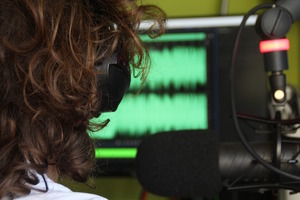- in Production by Bobby Owsinski
- |
- 3 comments
The 7 Basic Decisions That Every Producer Faces
 Before a music project can even begin there are a number of basic decisions that every producer faces in order to get the ball rolling. This excerpt from the latest edition of my Music Producer’s Handbook illustrates the many production considerations confronting a producer in a typical project before it even hits the studio. Most of the following applies to a band recording, but many can also apply to a producer creating beats and loops.
Before a music project can even begin there are a number of basic decisions that every producer faces in order to get the ball rolling. This excerpt from the latest edition of my Music Producer’s Handbook illustrates the many production considerations confronting a producer in a typical project before it even hits the studio. Most of the following applies to a band recording, but many can also apply to a producer creating beats and loops.
“1. Who is the engineer (or engineers)? Your choice of an engineer is critical to the project and, like many other aspects of production, this is not a place to cheap out. A great engineer is your safety blanket. He’ll make things sound great even with gear that’s not up to snuff, he’ll provide useful technical advice, audio expertise, and even production suggestions when you need another opinion.
Many projects will use a top engineer for basics and mixing, and a lower level guy for overdubs in order to save some money. While this can work, the continuity of having the same engineer all the way through the project will keep the quality uniformly high and actually save time and money, since there’s the possibility for confusion when projects are handed off between engineers.
2. Is any rental gear required? Even the most well-equipped studio in the world probably still doesn’t have something that you want or need for the session, be it an esoteric piece of audio or musical gear, or just something that’s essential for you to get “your sound.” Make sure that you plan ahead for when you’ll need the rental and plan your schedule around it if necessary. An example of this might be a rental of a grand piano or Hammond organ. You want to use it as soon as it arrives instead of paying rental time for it to just sit around.
3. What’s the best time of day to record? This can actually be a loaded question. While most bands would rather start early in the day to stay fresh, many singers don’t feel like their throats open up until later in the day. While you might only need a guide vocal from the singer as the basics are recorded, you certainly don’t want the singer to be harmed or feel abused, and herein lies the dilemma. The fact of the matter is, you don’t want to start recording too late in the day since you’ll end up having everyone burn out early and you might loose the advantage of a few hours of the daily rate that you’ve paid for. While starting the session at 10AM might not work, try to start no latter than noon if possible. Many musicians want or need to get home at a reasonable hour to be with their families, and working too far into the night can upset your body clock if you’re not used to it.
4. Will any additional musicians be required? Once again, it’s best to plan as far in advance as you can so you can schedule the other players as needed. The more players you need together at once (like a string or horn section), the more time in advance you may need to book them.
5. What format and sample rate? While it’s possible that you might still want to break out an analog tape machine to record your basics, chances are that at some point in the project you’ll probably return to the comfort and flexibility of a DAW (most likely Pro Tools). The choice of bit depth and sample rate can be critical to the amount of hassle that you’ll likely to encounter down the road. Here’s a chart that can help you with your choice.
6. What’s the order of recording? The order of recording is one of the most strategic decisions that a producer can make. Most producers like to start off with something relatively easy so the band gets comfortable with the studio and gains confidence in their playing. A school of thought says that the most difficult song should be recorded right after that first easy one so you can tackle it while you’re fresh and you have the ability to come back to it later if need be.
7. What studio or studios will you be using? It’s entirely possible that you’ll be using more than one studio to record your project, as is the norm these days. Usually you’ll use a studio with a room large enough to record drums or the rhythm tracks, then move on to a smaller and cheaper room for the overdubs. Then you might end up in a totally different studio for mixing, which brings up the following points about selecting a studio.”
If you want your project to come in on time and under budget, take some time to think about the above before your first session.
To read additional excerpts from The Music Producer’s Handbook and my other books, go to the excerpts section of bobbyowsinski.com.

